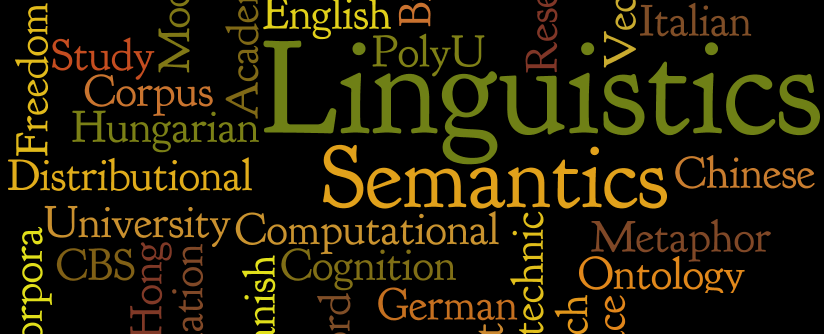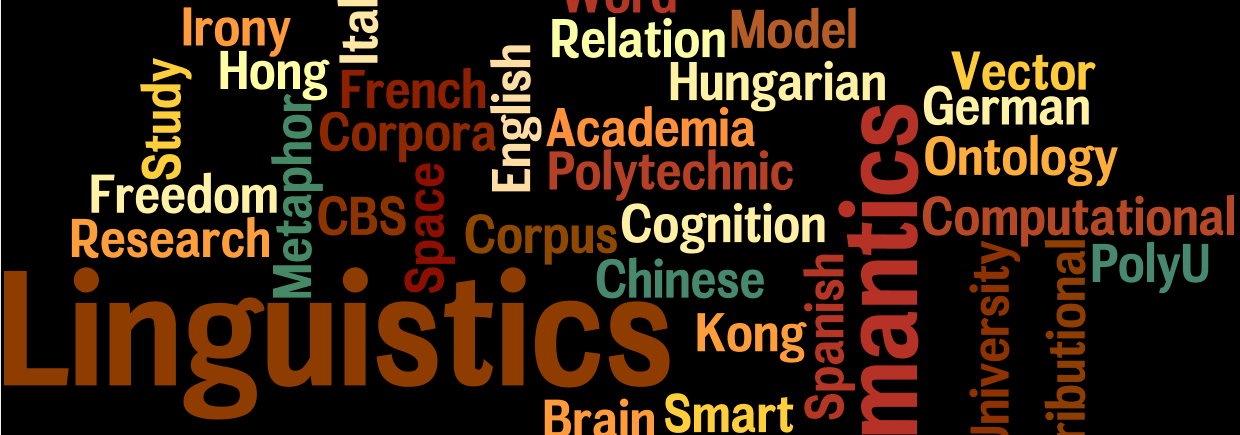Call for papers & Programs
Description
The LiNCR (pronounced as ‘linker’) workshop aims to provide a venue to explore a new generation of language resources which link and aggregate cognitive behavioural, neuroimaging measurement data to a shared set of richly annotated linguistic data. The issues will include but not limit to the ontology for aggregation of neuro-cognitive data with linguistic facts, how to interpret experimental data when linked to additional linguistic facts, how to design experiments that allow same data sets to be shared by different experimental modality, how to link and normalize data from subjects with special cognitive conditions to the norms, how to link and aggregate multilingual data, and the stochastic solutions for data aggregation and learning. In addition to providing a forum for presenting existing LiNCRs as well as innovative research based on integrated heterogeious datasets, we also welcome project notes and discussions on our proposal that may address issues and challenges arising from new types of LiNCRs. The workshop will also include breakout forums for initial discussion to form consortia for future collaboration. .
Motivation and topics of Interest
Language resources to-date can be described as collections of snapshots of language production. They are in vitro and ready to be tested but do not contain any direct information on the cognitive processes that produced them. That is, the in vivo perspectives of language are missing from them. On the other hand, studies on the neurobiological basis of language processing made significant progresses based on collected neurological, neuroimaging and behavioral datasets. But these experimental data typically focus on strictly controlled stimuli annotated with a single linguistic feature. Hence, the potential of linking richly annotated linguistic facts with experimental data has yet to be realised. The LiNCR workshop aims to bring together experts from computational, corpus, and neuro-cognitive linguistics to bridge this. We hope not only to herald in a new generation of language resources but also to open a new inter-disciplinary frontier in the exploration of human cognition based on LiNCRs.
Recent NLP research demonstrates that the incorporation of behavioural data (e.g. eye-tracking) improves modelling on a variety of language tasks (Long et al. 2017). Similarly, cognitive neuroscience studies can benefit from richly annotated linguistic data to uncover the relationship between brain regions and different language subprocesses (Wehbe et al. 2014; Huth et al. 2016). The time is ripe to bring these two fields together, and this workshop aims to advance research in this new frontier by exploring the following topics:
-Corpus selection (Mono/Multi-lingual)
-Ontology/framework for linking annotations in different modalities
-Linking experimental results to linguistically annotated data
-Design for multiple neuro-cognitive experimental platforms to share same linguistic data set
-Aggregation and normalization of data between population with special cognitive conditions with normal, and across different linguistic backgrounds
-Stochastic models for knowledge aggregation
Submissions
We welcome contributions which address any of the aspects of a new generation of language resources that link and aggregate neurological behavioral measurement data to a shared set of richly annotated linguistic data.
Multiple contributions are welcomed, but please note that you can only be first author for one contribution.
*Submission of proposals for oral and poster papers: 15 December 2017(Early), 15 January 2018(Regular):
In the START system, please specify whether you wish to have a poster or oral presentation. In both cases, the abstracts must consist 3 to 4 pages (references excluded).
*Full paper Presentation
-Single or multiple authors
-30-minute oral presentations (20 minutes presentation and 10 minutes QA)
*'Lightning' poster presentation
-Single or multiple authors
-Two-minute presentation
Abstracts should be submitted in PDF format via Softconf START system following the submission guidelines: http://lrec2018.lrec-conf.org/en/submission/authors-kit/
The submission link for LiNCR workshop is https://www.softconf.com/lrec2018/LiNCR/
Identify, Describe and Share your LRs!
Describing your LRs in the LRE Map is now a normal practice in the submission procedure of LREC (introduced in 2010 and adopted
by other conferences). To continue the efforts initiated at LREC 2014 about “Sharing LRs” (data, tools, web-services, etc.), authors will have
the possibility, when submitting a paper, to upload LRs in a special LREC repository. This effort of sharing LRs, linked to the LRE Map for
their description, may become a new “regular” feature for conferences in our field, thus contributing to creating a common repository where everyone can deposit and share data.
As scientific work requires accurate citations of referenced work so as to allow the community to understand the whole context and also replicate the experiments conducted by other researchers, LREC 2018 endorses the need to uniquely Identify LRs through the use of the International Standard Language Resource Number (ISLRN, www.islrn.org), a Persistent Unique Identifier to be assigned to each Language Resource. The assignment of ISLRNs to LRs cited in LREC papers will be offered at submission time.
Important dates
Early Submission deadline: December 15, 2018
Regular Submission deadline: January 15, 2018 (Now extended to January 25, 2018)
Notification of acceptance: February 12, 2018
Camera ready due: March 1, 2018
Workshop at LREC: May 8, 2018
Programme
First Session:
09.00 – 09.10 Opening Remarks
09.10 – 09.30 Paolo Vassallo, Emmanuele Chersoni, Enrico Santus, Alessandro Lenci, Philippe Blache
Event Knowledge in Sentence Processing: a New Dataset for the Evaluation of Argument Typicality
09.30 – 09.50 Alessandro Lopopolo, Stefan L. Frank, Antal van den Bosch, Annabel Nijhof, Roel Willems
The Narrative Brain Dataset (NBD), an fMRI Dataset for the Study of Natural Language Processing in the Brain
09.50 – 10.10 Thierry Chaminade, Laurent Prevot, Magalie Ochs, Birgit Rauchbauer, Noe Nguyen
Challenges in Linking Physiological Measures and Linguistic Productions in Conversations
10.10 – 10.30 Philippe Blache, Stephane Rauzy, Deirdre Bolger, Chotiga Pattamadilok, Sophie Dufour
A Dataset for Studying Idiom Processing with EEG
10:30 – 11:00 Coffee break
Second Session:
11.00 – 11.20 Adam Pease and Chu-Ren Huang
Ontology and Synesthesia: Language, Sense and the Conceptual Inventory
11.20 – 11.40 Amir Bakarov
Can Eye Movement Data Be Used As Ground Truth For Word Embeddings Evaluation?
11.40 – 12.05 Cory Shain, Marten van Schijndel, William Schuler
Deep Syntactic Annotations for Broad-Coverage Psycholinguistic Modeling
12.00 – 12.20 JO Charmhun
Synesthetic Metaphors in Korean Compound Words
12:20 – 12:25 Chun-hsien Hsu, Chia-ying Lee, Jie-li Tsai
Frequency and Predictability Effects in Natural Reading: Evidence from Coregistration of Eye-movement and Event-related Potentials Measures
12:25 – 12:30 Zude Zhu, Xiaopu Hou, Yiming Yang
Reduced Syntactic Processing Efficiency in Older Adults in Reading Sentences
12:30 – 12:35 Libo Geng and Lillian Zhao
The Stroop-like Effect During Sound Perception Task in Bilingual Minds
12:35 – 12:45 Concluding remarks and general discussion

